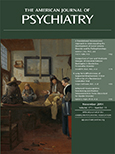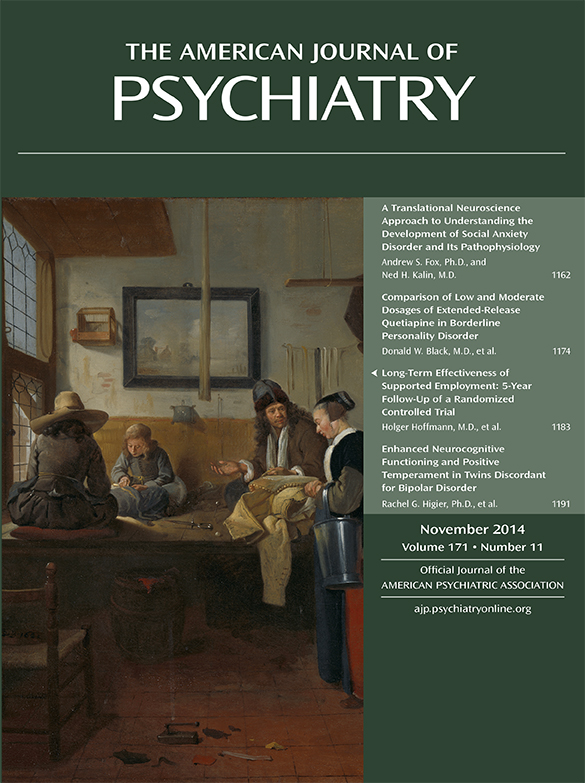T
o the E
ditor: Dr. Smith asks an important question, namely if “
d-cycloserine augmentation of virtual reality exposure therapy appeared to be associated with worse outcomes for the subset of patients experiencing little response or worsening of subjective distress during the treatment.” The figure and analysis to which Dr. Smith refers are implied from a mixed-effect model that included all participants (N=156). Different outcomes were discovered based on different measures in this study. The most robust beneficial effects of
d-cycloserine were seen in the more objective measures of psychophysiological startle and salivary cortisol, consistent with the animal literature on the facilitation of extinction by
d-cycloserine. Less consistent were the posttraumatic stress disorder (PTSD) clinical measures that were all based on patient self-report. Even though the Clinician Administered PTSD Scale is a clinical interview, it is based on patient self-report of PTSD symptoms. Even more subjective is the Subjective Units of Distress Scale, which the analysis of emotional learning within and between sessions (to which Dr. Smith refers) is based. Using raw change in Clinician Administered PTSD Scale scores as an indicator of treatment response, we identified two participants in the
d-cycloserine condition who had worse symptoms at posttreatment relative to pretreatment. This was less than the six participants in the alprazolam condition and eight in the placebo condition who had worse symptoms at posttreatment relative to pretreatment. The two participants in the
d-cycloserine condition with negative scores did not demonstrate negative emotional learning. The graphs in the figure correspond to model-implied trajectories, suggesting that it is theoretically possible that a participant with sufficient negative emotional learning could have poorer outcomes with
d-cycloserine relative to a lack of
d-cycloserine. This phenomena, however, was not observed in our current sample. Furthermore, the graphs we presented correspond to response in the
d-cycloserine condition relative to change in the placebo or alprazolam conditions. That is, these graphs suggest that the negative outcomes obtained are relative to other conditions as opposed to overall functioning. Dr. Smith then suggests “adding the
d-cycloserine or a similar agent after the first couple of sessions and only for that subset of patients that have already started to experience a positive response to the treatment.” We think this is a very interesting and important idea, and it is similar to what has been attempted in several recent trials of
d-cycloserine combined with exposure therapy (
1–
3). Most of these have found benefit only for those patients who demonstrated emotional learning within that session, as was found in our study administering
d-cycloserine 30 minutes prior to exposure therapy. We absolutely agree with Dr. Smith’s suggestions to determine who is most likely to respond well to exposure therapy and to exposure therapy combined with cognitive enhancers. In this study, those patients who displayed larger startle responses prior to treatment and had lower salivary cortisol in response to the virtual scenes embedded with acoustic startle probes fared better when the virtual reality exposure therapy was combined with
d-cycloserine compared with alprazolam or placebo.

